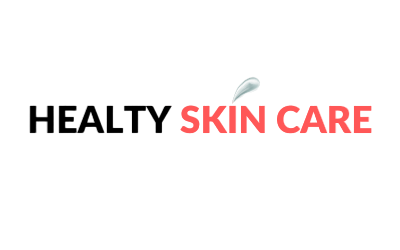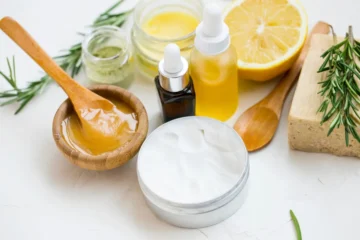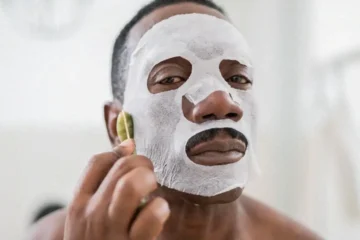Acne can feel like an uninvited guest that overstays its welcome. For many teenagers and young adults, the struggle with acne is a daily reality that affects not just their skin but also their self-esteem and mental health. Dealing with breakouts can be frustrating and disheartening, leaving many to wonder how long it will take for their acne to clear up finally.
This blog aims to unravel the mystery behind acne and provide a comprehensive guide to understanding its causes, the different types, and the various factors that can influence healing time. By the end of this article, you’ll have a clearer picture of what to expect and practical tips to help you on your path to clearer skin.
Understanding Acne
Acne is a common skin condition that affects millions of people worldwide. It’s caused by a combination of factors, including hormonal imbalances, genetics, and lifestyle choices. When hair follicles become clogged with oil and dead skin cells, they create the perfect environment for bacteria to thrive, leading to inflammation and the formation of pimples.
Hormonal changes, particularly during puberty, are a significant contributor to acne. Androgens, male hormones present in both men and women, increase during puberty and stimulate the sebaceous glands to produce more oil. This excess oil can clog pores and lead to breakouts. Genetics also play a role; if your parents had acne, you’re more likely to experience it as well.
Lifestyle factors such as diet, stress, and skincare habits further influence the severity and duration of acne. Consuming a diet high in processed foods and sugars can exacerbate breakouts, while chronic stress can trigger hormonal responses that worsen acne. Poor skincare routines, like using harsh products or not cleansing properly, can also contribute to clogged pores and inflammation.
Types of Acne
Understanding the different types of acne is crucial for effective treatment. Acne ranges from mild to severe, and each type requires a unique approach.
Whiteheads and Blackheads
Whiteheads and blackheads are considered non-inflammatory acne. Whiteheads form when pores are clogged with oil and dead skin cells, creating a closed comedone. Blackheads, on the other hand, are open comedones where the trapped material oxidizes and turns black.
Papules and Pustules
Papules are small, red, inflamed bumps without a visible center. Pustules are similar but contain pus, making them appear white or yellow at the tip. Both types are inflammatory and can cause discomfort.
Nodules and Cysts
Nodules are large, painful lumps deep within the skin. Cysts are even larger, filled with pus, and can be very painful. Both nodules and cysts are severe forms of acne that can lead to scarring if not treated properly.
Factors Affecting Healing Time
The time it takes for acne to heal varies from person to person and depends on several factors.
Skincare Routines
Consistent and effective skincare routines play a significant role in managing acne. Using gentle cleansers, non-comedogenic moisturizers, and targeted treatments can help reduce inflammation and prevent new breakouts. Over-cleansing or using harsh products can aggravate the skin and prolong the healing process.
Diet and Nutrition
What you eat can impact your skin’s health. Diets high in sugars and processed foods can trigger inflammation and worsen acne. Incorporating nutrient-rich foods like fruits, vegetables, and omega-3 fatty acids can promote clearer skin. Drinking plenty of water also helps flush out toxins and maintain hydration.
Stress Management
Stress can trigger hormonal changes that exacerbate acne. Finding healthy ways to manage stress, such as exercise, meditation, or hobbies, can help improve your skin. Chronic stress can also lead to poor sleep, which further impacts your skin’s ability to heal.
Timeline of Healing
While there’s no one-size-fits-all answer to how long it takes for acne to go away, there are general timelines based on the type and severity of acne.
Mild Acne
Mild acne, such as whiteheads and blackheads, typically clears up within a few weeks to a couple of months with proper skincare and lifestyle changes. Over-the-counter treatments like salicylic acid and benzoyl peroxide can speed up the healing process.
Moderate Acne
Moderate acne, including papules and pustules, may take several months to improve. Consistent use of topical treatments and possibly oral medications prescribed by a dermatologist can help manage and reduce breakouts.
Severe Acne
Severe acne, such as nodules and cysts, requires professional intervention and can take several months to a year to show significant improvement. Prescription medications, hormonal treatments, and sometimes procedures like cortisone injections or laser therapy may be necessary.
Effective Treatments
There are various treatments available to manage and reduce acne. Understanding the options can help you choose the best approach for your skin.
Over-the-Counter Treatments
OTC treatments like benzoyl peroxide, salicylic acid, and alpha hydroxy acids (AHAs) are effective for mild to moderate acne. These ingredients help unclog pores, reduce inflammation, and promote cell turnover.
Prescription Medications
For more severe cases, dermatologists may prescribe topical retinoids, antibiotics, or oral medications like isotretinoin. Hormonal treatments such as birth control pills or spironolactone can also be effective for hormonal acne.
Lifestyle Changes
Incorporating healthy habits like a balanced diet, regular exercise, and adequate sleep can support overall skin health. Avoiding smoking and reducing alcohol consumption also contribute to clearer skin.
Maintaining Clear Skin
Once you’ve achieved clearer skin, maintaining it requires ongoing effort and care. Here are some tips to help you keep breakouts at bay.
Consistent Skincare Routine
Stick to a gentle and consistent skincare routine. Cleanse your face twice a day, use non-comedogenic moisturizers, and apply sunscreen daily. Regular exfoliation with mild exfoliants can help prevent clogged pores.
Healthy Diet and Hydration
Continue to focus on a nutrient-rich diet and stay hydrated. Avoid foods that trigger breakouts and incorporate plenty of fruits, vegetables, and lean proteins into your meals. Drinking enough water helps maintain skin elasticity and overall health.
Stress Management and Sleep
Manage stress through relaxation techniques, hobbies, and physical activity. Prioritize getting 7-9 hours of quality sleep each night to support your skin’s natural healing processes.
Personal Success Story
Meet Sarah, a young adult who battled severe acne throughout her teenage years. After trying numerous treatments without success, she decided to consult a dermatologist. Sarah was prescribed a combination of topical retinoids and oral antibiotics, along with a tailored skincare routine.
Through dedication and patience, Sarah saw significant improvement in her skin over six months. She learned the importance of consistency and found support in online communities. Today, Sarah enjoys clear skin and shares her story to inspire others facing similar challenges.
Case Study on Hormonal Acne
Hormonal acne can be particularly challenging to manage. Emily, a 19-year-old college student, experienced persistent breakouts due to hormonal fluctuations. Her dermatologist recommended a combination of hormonal therapy and dietary adjustments.
Emily incorporated foods rich in zinc and antioxidants into her diet and reduced her intake of dairy and processed sugars. With consistent treatment and lifestyle changes, Emily’s hormonal acne improved significantly within four months. Her story highlights the importance of addressing the root causes of acne for effective results.
Before-and-After Photos
Seeing is believing. Check out these before-and-after photos of individuals who have transformed their skin with consistent care and treatment. From severe cystic acne to clear, glowing skin, these stories offer hope and motivation for anyone on their acne journey.
Conclusion
Dealing with acne can be a frustrating and emotional experience, but there is hope. Understanding the causes, types, and factors affecting healing time can empower you to take control of your skin health. With the right treatments, lifestyle changes, and patience, clearer skin is achievable.
Remember, you’re not alone on this journey. Many have walked this path and found success through perseverance and support. If you’re struggling with acne, don’t hesitate to seek professional help and explore the various treatment options available.
Discover Your Personalized Skincare Routine Today
Ready to take the next step in your skincare journey? Please share your experiences with acne in the comments section below, and explore our related articles on skincare. Discover your personalized skincare routine today and unlock the secrets to healthy, radiant skin.





